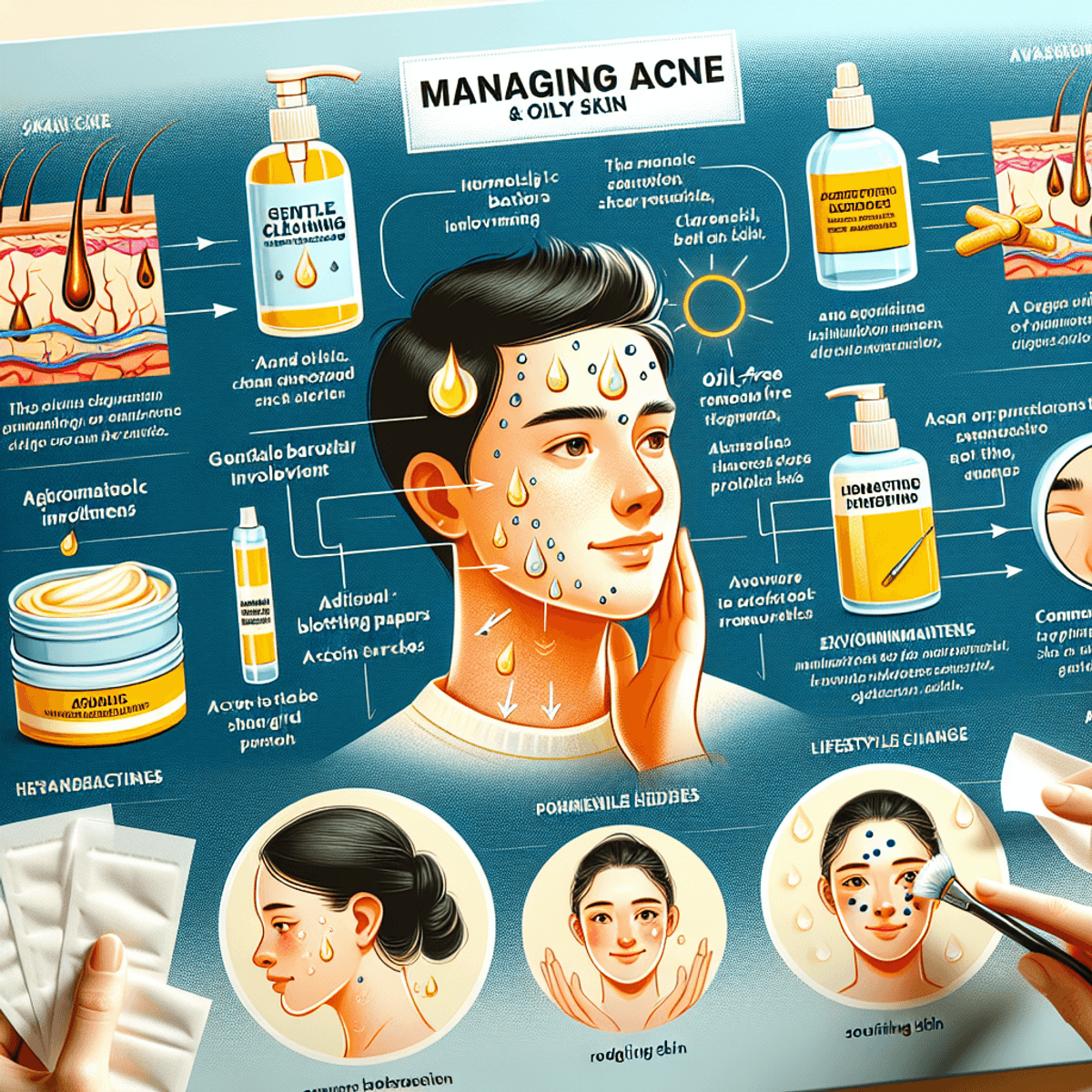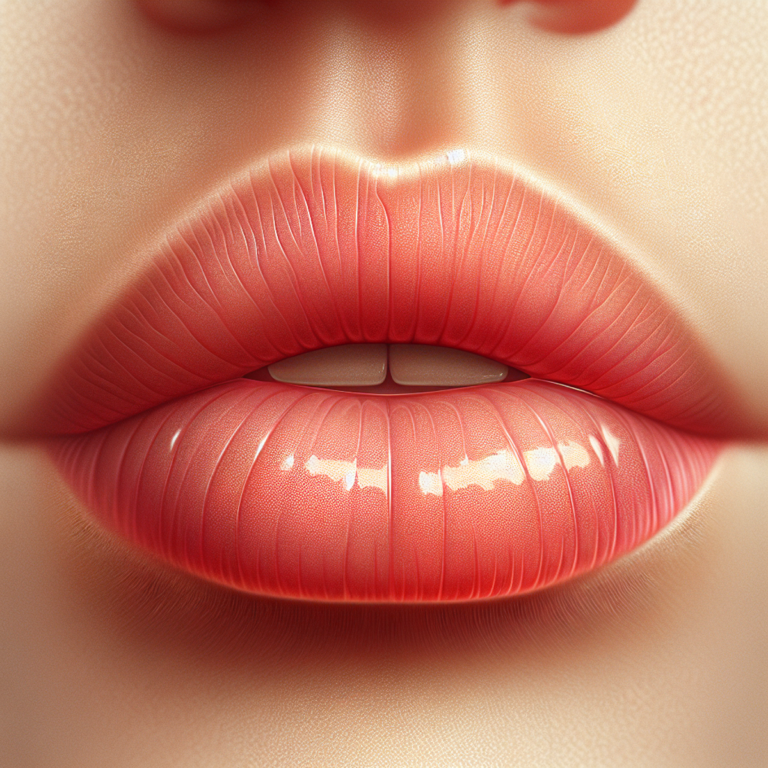Dermatologist Tips for How to Get Rid of Acne & Oily Skin

Introduction
Dealing with acne and oily skin can be a frustrating experience. Acne often shows up as pimples, blackheads, and whiteheads, mainly because of clogged pores, hormonal changes, and bacteria. Oily skin happens when your skin’s oil glands are working overtime, creating too much oil that can block pores and lead to acne.
Dermatological advice is crucial for effectively managing these conditions. Dermatologists provide expert guidance on the best skincare practices and treatments tailored to your specific skin type. They help you navigate through the overwhelming number of products out there and find the ones that work for you without causing irritation or more breakouts.
In this article, you will discover:
- Understanding Acne and Oily Skin: Learn about hormonal changes, bacterial involvement, and environmental factors that contribute to acne.
- Essential Skincare Practices for Acne Management: Discover the importance of gentle cleansing, the benefits of oil-free products, and misconceptions about moisturizing oily skin.
- Avoiding Common Irritants in Your Skincare Routine: Find out how to identify common irritants and choose suitable skincare ingredients.
- Managing Excess Oil Throughout the Day: Get tips on effectively using blotting papers for managing oily skin.
- Treatment Options for Persistent Acne: Understand when it’s time to seek professional help or try natural remedies.
- Long-Term Solutions for Acne Management: Explore lifestyle changes that support long-term skin health.
By integrating these dermatologist tips into your daily routine, you can better manage acne-prone and oily skin. This guide provides practical strategies to help you achieve clearer, healthier skin.
Understanding Acne and Oily Skin
Acne Causes
Acne is influenced by a combination of factors, including hormonal changes, bacterial involvement, and environmental influences. Hormonal fluctuations, particularly during puberty, menstruation, and pregnancy, can trigger the sebaceous glands to produce more sebum. This excess oil can clog pores and lead to acne formation.
Sebum Production and Pores
Sebum is an oily substance produced by your sebaceous glands. While it plays a crucial role in moisturizing your skin, excessive sebum production can lead to clogged pores. When these pores become blocked with sebum, dead skin cells, and bacteria like Propionibacterium acnes, it can result in pimples.
Connection Between Oily Skin and Acne Formation
People with oily skin are more prone to acne due to higher levels of sebum production. The excess oil not only clogs pores but also provides a fertile environment for acne-causing bacteria. Understanding how to manage oily skin is key to preventing acne breakouts.
Common Triggers
- Hormonal Changes: Hormonal imbalances during puberty, menstrual cycles, or stress can increase sebum production.
- Diet: Certain foods have been linked to increased acne severity; for instance, high glycemic foods and dairy products are among the foods that cause acne.
- Environmental Factors: Humidity and pollution can exacerbate acne by causing more oil production or by clogging pores with dirt.
- Genetics: Family history can play a significant role in determining your propensity for acne.
Managing Acne
To effectively manage these conditions:
- Use gentle cleansers twice daily.
- Opt for non-comedogenic products that won’t clog pores.
- Maintain a balanced diet and drink plenty of water.
- Consult dermatologists for personalized advice if persistent issues arise.
Understanding the root causes of acne and oily skin helps in developing an effective skincare routine tailored to your needs. This knowledge empowers you to make informed choices about products and treatments that best suit your skin type.
Essential Skincare Practices for Acne Management
Gentle Cleansing
Using a gentle foaming cleanser twice daily is crucial for managing acne-prone and oily skin. This type of cleanser helps remove excess oil, dirt, and impurities without causing irritation. Washing your face in the morning and before bed keeps pores clear and reduces the risk of breakouts.
Benefits of Oil-Free Products
Oil-free skincare and makeup products are less likely to clog pores and contribute to acne. Look for labels that say non-comedogenic, which means the product is formulated to not block pores. Choosing the right products can significantly impact pore health:
- Oil-Free Moisturizers: These are designed to hydrate your skin without adding extra oil.
- Non-Comedogenic Makeup: Opt for foundations, powders, and blushes that won’t contribute to breakouts.
Misconceptions About Moisturizing Oily Skin
A common misconception is that oily skin doesn’t need moisturizing. However, even oily skin requires hydration to maintain a healthy balance. Lightweight, oil-free moisturizers are ideal because they provide necessary moisture without making your skin greasy. It’s important to note that debunking skincare myths, such as this one, can lead to better skincare decisions.
Benefits of SPF in Moisturizers
Using a moisturizer with SPF 30 or higher protects your skin from harmful UV rays while keeping it hydrated. Sun protection is essential in preventing hyperpigmentation and scarring associated with acne.
Key Takeaways
- Use a gentle foaming cleanser twice daily to keep pores clear.
- Look for non-comedogenic labels on oil-free products to avoid clogged pores.
- Hydrate without adding extra oil by choosing lightweight moisturizers; opt for options with SPF for added sun protection.
By integrating these essential skincare practices into your routine, you can effectively manage acne-prone and oily skin. Additionally, understanding how certain products may affect other areas like your beard care routine could also be beneficial; for instance, applying similar principles when caring for facial hair can enhance overall skin health.
Avoiding Common Irritants in Your Skincare Routine
Identifying and avoiding common irritants is crucial in managing acne and oily skin. Some skincare products contain ingredients that can exacerbate acne, making it essential to choose alternatives wisely.
Common Irritants That Exacerbate Acne
Certain ingredients in skincare products can irritate the skin and worsen acne. For instance, vaping has been linked to acne, indicating that lifestyle choices can also contribute to skin issues.
- Astringents: Often contain alcohol, which can dry out the skin and trigger increased oil production.
- Harsh Toners: May strip the skin of its natural oils, leading to irritation and breakouts.
- Exfoliants: Physical exfoliants with rough particles can cause micro-tears in the skin, promoting inflammation.
Alternatives to Harsh Products
Switching to gentler options can help maintain skin health without causing irritation. For those with sensitive skin, it’s important to understand how to care for it:
- Alcohol-Free Toners: Look for toners with soothing ingredients like witch hazel or rose water.
- Gentle Exfoliants: Opt for chemical exfoliants with AHAs (alpha hydroxy acids) or BHAs (beta hydroxy acids) that gently dissolve dead skin cells without abrasive action.
How to Choose Suitable Skincare Ingredients
Selecting the right ingredients is vital for managing acne-prone and oily skin. Focus on:
- Non-Comedogenic Products: Ensure products are labeled as non-comedogenic to avoid pore clogging.
- Oil-Free Formulations: Choose oil-free cleansers, moisturizers, and sunscreens to prevent excess oil buildup.
- Soothing Agents: Ingredients like aloe vera, chamomile, and niacinamide can calm irritated skin.
Dermatologist Tips for How to Get Rid of Acne & Oily Skin emphasize the importance of reading labels carefully. By avoiding harsh astringents, toners, and exfoliants, you can reduce irritation and support healthier skin. Opting for gentle alternatives ensures that your skincare routine contributes positively to managing acne and oily skin.
Choosing suitable skincare ingredients involves careful consideration of their properties. Non-comedogenic and oil-free formulations are less likely to clog pores or contribute to breakouts. Additionally, incorporating soothing agents into your routine can help minimize irritation and promote overall skin health. It’s also essential to be aware of potential triggers such as certain foods or environmental factors that could exacerbate conditions like rosacea.
Managing Excess Oil Throughout the Day for Clearer Skin
Oily skin can be challenging to manage, especially during busy days when you don’t have time for frequent touch-ups. Blotting papers offer an effective solution for controlling excess oil without disrupting your makeup or skincare routine.
Benefits of Blotting Papers
- Instant Oil Absorption: Blotting papers quickly absorb excess oil from the skin’s surface, leaving it looking matte and fresh.
- Convenience: These small, portable sheets fit easily into your purse or pocket, making them perfect for on-the-go use.
- Non-Intrusive: Unlike powders or reapplication of products, blotting papers don’t add layers to your skin, reducing the risk of clogged pores.
When and How to Use Blotting Papers Effectively
- Timing: Use blotting papers as soon as you notice a shine developing. This often happens mid-morning or early afternoon.
- Technique: Gently press the blotting paper onto oily areas like the forehead, nose, and chin. Avoid rubbing to prevent disturbing your makeup.
- Frequency: Depending on your skin’s oil production, you may need to use blotting papers several times throughout the day. Keep an eye on how your skin reacts and adjust accordingly.
If you’re interested in exploring other options besides traditional blotting papers, you might wonder if baby wipes could serve as an alternative. However, it’s important to note that while these methods can help manage oily skin temporarily, they are not long-term solutions. For more sustainable results, consider implementing some lifestyle changes such as adjusting your diet or skincare routine.
Additionally, if you’re looking for recommendations on the best oil-blotting products, there are plenty of options available that cater to various preferences and budgets. Overall, blotting papers are a simple yet powerful tool in managing oily skin. They help maintain a balanced complexion without stripping your skin of its natural oils or causing irritation.
Treatment Options for Persistent Acne: When to Seek Professional Help or Try Natural Remedies
Persistent acne, which can include blackheads, can be challenging and may require a combination of over-the-counter treatments and professional guidance. Understanding that results take time is crucial when using topical treatments. Common active ingredients such as benzoyl peroxide, salicylic acid, and retinoids work gradually to unclog pores, reduce inflammation, and promote cell turnover. Consistency in application is key; skipping treatments or using them sporadically can hinder progress.
When to Seek Professional Help
When at-home remedies fall short, it may be time to consult a dermatologist. Signs that you need professional help include:
- Severe or cystic acne
- Acne that does not improve after three months of consistent at-home treatment
- Acne causing significant emotional distress or scarring
- Frequent breakouts despite a diligent skincare routine
Treatment Options from Dermatologists
A dermatologist can offer a range of treatment options tailored to your skin’s needs. These include:
- Prescription Topical Treatments: Stronger formulations of retinoids, antibiotics, or combination therapies.
- Oral Medications: Antibiotics to reduce bacteria and inflammation, hormonal treatments like birth control pills or spironolactone for women with hormonally driven acne.
- In-office Procedures: Chemical peels, laser therapy, and light therapy can target deeper layers of the skin for more effective results.
Trying Natural Remedies
For those interested in natural remedies, certain ingredients can complement traditional treatments:
- Tea tree oil: Has antimicrobial properties that may help reduce acne-causing bacteria.
- Green tea extract: Its anti-inflammatory effects can soothe irritated skin.
However, natural remedies should be used cautiously and ideally under the supervision of a dermatologist to avoid potential reactions or interactions with other treatments.
Persistent acne often requires a multi-faceted approach. Combining consistent use of topical treatments with professional guidance ensures the best chance for clear skin.
Long-Term Solutions for Acne Management: Lifestyle Changes and Holistic Approaches
Making long-term lifestyle changes can greatly improve your skin health. For lasting solutions to acne, it’s important to take a holistic approach.
Lifestyle Changes
- Diet: What you eat matters. Diets high in sugars and dairy can worsen acne. Instead, choose a balanced diet with plenty of fruits, vegetables, lean proteins, and whole grains.
- Hydration: Drinking lots of water helps keep your skin elastic and flushes out toxins.
- Sleep: Getting quality sleep is crucial for repairing and regenerating your skin. Aim for 7-9 hours of sleep each night.
- Stress Management: High stress levels can lead to hormonal imbalances, which may cause breakouts. Try stress-reducing activities like yoga, meditation, or deep-breathing exercises.
Integrating Skincare Routines
Being consistent with your skincare routine is essential:
- Daily Cleansing: Make it a habit to wash your face twice daily with a gentle foaming cleanser.
- Moisturizing: Regularly use lightweight, non-comedogenic moisturizers.
- Sun Protection: Always apply SPF 30 or higher to shield your skin from UV damage.
Holistic Approaches
Holistic approaches look at the body as a whole:
- Herbal Remedies: Ingredients like tea tree oil and aloe vera have anti-inflammatory properties that can help reduce acne.
- Probiotics: These improve gut health which in turn can positively impact skin health.
- Regular Exercise: Physical activity boosts blood circulation, delivering more oxygen to your skin cells and aiding in detoxification.
Incorporating these strategies into your daily routine can lead to significant improvements in managing acne and oily skin over time. Lasting solutions for acne involve a combination of consistent skincare practices, healthy lifestyle habits, and holistic treatments that address underlying causes rather than just symptoms.
Conclusion: Prioritizing Skin Health Through Informed Choices
Managing acne effectively requires a commitment to informed choices and consistent skincare practices. By integrating dermatologist-recommended tips into your routine, you can achieve clearer skin and improved overall health.
- Stay Consistent: Regularly apply recommended treatments and follow a daily skincare regimen.
- Choose Wisely: Opt for non-comedogenic and oil-free products to prevent clogged pores.
- Seek Professional Advice: Consult with dermatologists for personalized guidance.
Prioritizing skin health means making educated decisions about your skincare routine. With the right approach, you can manage acne and oily skin effectively.
FAQs (Frequently Asked Questions)
What are the main causes of acne and oily skin?
Acne and oily skin can be caused by hormonal fluctuations, bacterial involvement, and environmental factors. These elements contribute to increased sebum production, which can clog pores and lead to breakouts.
How can I effectively manage oily skin?
To manage oily skin, it is essential to use a gentle foaming cleanser twice daily, opt for oil-free skincare and makeup products, and choose non-comedogenic labels. Additionally, lightweight moisturizers and SPF in your skincare routine can help maintain skin health without exacerbating oiliness.
What are some common irritants to avoid in my skincare routine?
Common irritants that can exacerbate acne include harsh astringents, toners, and exfoliants. It is advisable to seek alternatives that are gentle on the skin and to choose suitable skincare ingredients that do not aggravate your condition.
When should I consider seeking professional help for persistent acne?
If at-home treatments are insufficient after a consistent effort, it may be time to consult a dermatologist. Signs that you should seek professional help include severe breakouts that do not respond to over-the-counter products or if you desire more advanced treatment options.
What lifestyle changes can support long-term acne management?
Lifestyle changes such as maintaining a balanced diet, staying hydrated, managing stress, and integrating consistent skincare routines into your daily life can support long-term skin health. Holistic approaches that consider overall well-being are also beneficial.
How do I use blotting papers effectively throughout the day?
Blotting papers are beneficial for managing excess oil throughout the day. To use them effectively, gently press the blotting paper against areas of your face where oil accumulates without rubbing. This helps absorb excess sebum without disturbing your makeup or irritating your skin.










